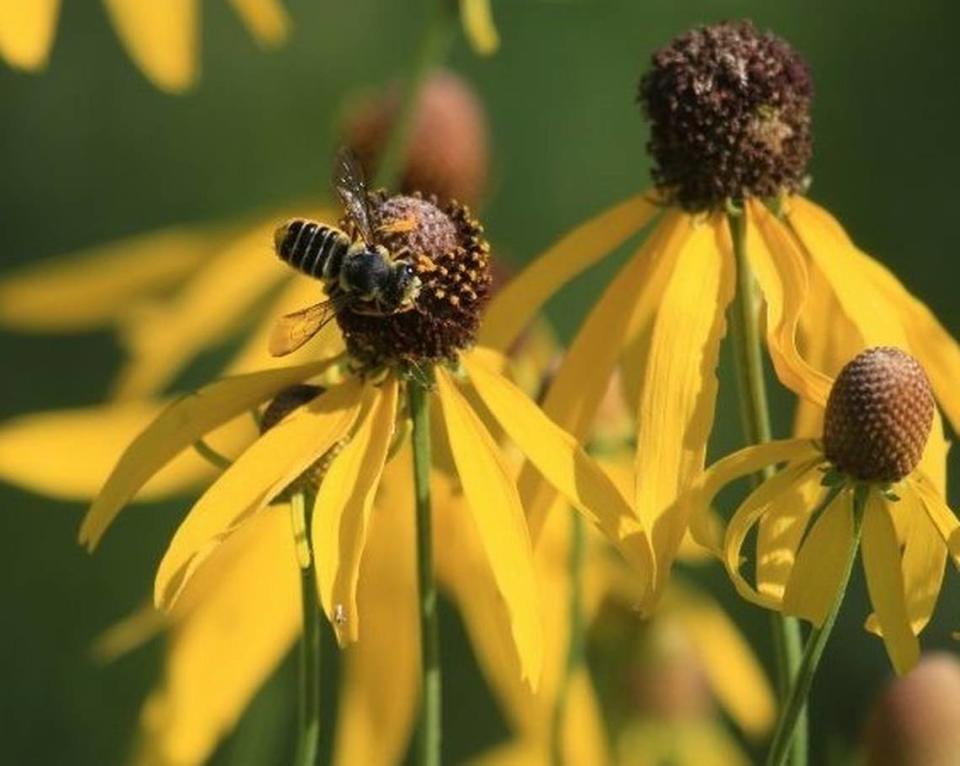In the garden, actions speak louder than words. Protect our valuable insects, birds
Who doesn’t love nature? The Kansas City area has great places to sit back and enjoy the sights and sounds of the outdoors, whether you’re strolling along a shady canopied path or relaxing in your backyard. Consider what you might see and hear: birds singing, the flitting of a delicate butterfly, or a lightning bug flickering brightly in the darkness. Do you realize that your actions profoundly affect these beauties of nature?
Each year we experience potentially destructive insects. A few of the more notable ones include bagworms, Japanese beetles and rose slugs, which all feed extensively on some of our most desirable plants. Insects feed not only on our plants but us as well. This year is no exception, with large numbers of ticks and mosquitoes. Many people use pesticides to control unwanted visitors.
Did you know most insecticides used to control harmful insects also wipe out the good bugs we enjoy or need for survival? It is estimated that of the thousands of insect species, less than 5% are considered harmful, cause damage or are life-threatening to our crops. Most insects are valuable, beneficial and necessary to pollinate most of our food crops.
The next time you reach for that bottle of insecticide to control some insects, think twice about what else you might be killing. Most insecticides are not selective but will harm all insect species. Here are some tips for protecting the beneficial insects:
▪ Reduce total pesticide usage: Tolerate damage, as plants don’t need to be perfect.
▪ Target only infected plants: Do not broadcast spray areas that are not infested.
▪ To protect bees and other pollinators, don’t spray plants that are in flower.
▪ Spray in the evening instead of the morning: There’s less pollinator activity.
▪ Use insecticides only at labeled rates and application methods.
▪ Spray on cooler days with lower wind speeds to reduce drift.

When it comes to protecting ourselves from the insects, think twice about your approach. The best way to protect your body is through personal protection or habitat modification. That means wearing appropriate clothing to reduce exposure, limiting time outdoors, and applying insecticidal repellents directly to our apparel or body. These options are more effective and less destructive than having the entire yard and garden fogged or sprayed to reduce the pest problems like mosquitoes.
Like sprays targeting a specific plant, this global approach to treating the yard can kill the beneficial insects. Organic or natural-based insecticides can wipe out the good guys, such as Monarch butterflies.
These are simple tips to follow. But remember, before spraying any pesticide, ask yourself whether the area needs to be treated. If it does, what is the least destructive method of treatment? In many cases, you will find that with just a little patience and tolerance, the issue will become a memory.
Remember this thought when you spray: “It is just not harmful insects I am killing, but also the good ones.” That thought will make you think twice before pulling the trigger on your sprayer or fogger.
Dennis Patton is a horticulture agent with Kansas State University Research and Extension. Need help? Contact the Johnson County Extension gardening hotline at 913-715-7050 or email garden.help@jocogov.org.

